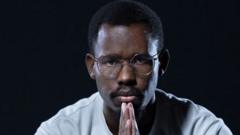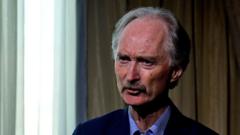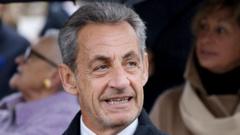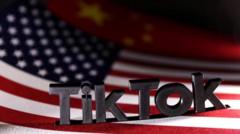Recently leaked intimate videos of Baltasar Ebang Engonga have sent shockwaves through Equatorial Guinea, raising questions about whether this scandal serves as a political weapon amidst a fierce succession battle. The implications extend far beyond mere scandal, highlighting issues of corruption, power dynamics, and human rights in the country.
Political Maneuvering Behind Equatorial Guinea's Sex Tape Scandal
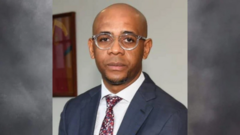
Political Maneuvering Behind Equatorial Guinea's Sex Tape Scandal
The leak of numerous explicit videos of Baltasar Ebang Engonga may be part of a broader political strategy in Equatorial Guinea's power struggle.
The recent scandal involving numerous leaked intimate videos of Baltasar Ebang Engonga, a senior civil servant in Equatorial Guinea, might be rooted in a deeper political struggle rather than simply sensationalism. In what has been described as a cascade of explicit images—estimated to range from 150 to over 400—Engonga has found himself at the heart of a potential defamation campaign amid long-standing political intrigues surrounding the country’s leadership.
Engonga, known for his good looks and nicknamed "Bello," is a nephew of President Teodoro Obiang Nguema, who has ruled since 1979 and is infamous for his repressive leadership. Currently the world's longest-serving president, Obiang’s administration is characterized by significant wealth disparity and a disintegrating human rights climate, with numerous reports of torture and political repression emerging from the government.
After Engonga was arrested on allegations of embezzlement, the explicit videos began surfacing on social media, leading to speculation that they were strategically leaked to undermine his credibility and influence in the political arena. As the head of the National Financial Investigation Agency, Engonga had been involved in the government’s fight against corruption, making his sudden fall from grace particularly revealing.
Vice-President Teodoro Obiang Mangue, who previously owned a famous Michael Jackson artifact, has worked to quell the scandal by demanding that telecommunication companies act against the spread of the videos. His statement underscored a desire to protect familial reputation, as some of the filmed women are closely associated with the country's elite, adding another layer to the palace intrigue fueling the current power struggle.
The videos initially appeared on Telegram and subsequently spread through WhatsApp, prompting immediate calls for legal action against Engonga for the non-consensual sharing of images. While the government portrays the scandal as a violation of norms, it could also be a tactical move by factions within the ruling elite vying for control.
Political commentators and activists have suggested that this incident is a broader reflection of the competition for power as the aging president approaches an uncertain future. Engonga’s family ties make him a rival to the vice-president, who is suspected of orchestrating the public humiliation of potential challengers to secure his own path to the presidency.
Critics worry about the implications of the scandal on social media freedoms, as authorities may use it as a pretext to increase censorship. Amidst the titillation of the leaked content, many activists are disillusioned, emphasizing that the real issues—corruption and human rights abuses—remain unaddressed.
This tumultuous development has caught international attention, indicating a surge in interest toward Equatorial Guinea. While the scandal has dominated headlines, it serves as a mere symptom of the deeper structural problems in a nation known for its opaque governance and economic challenges.





